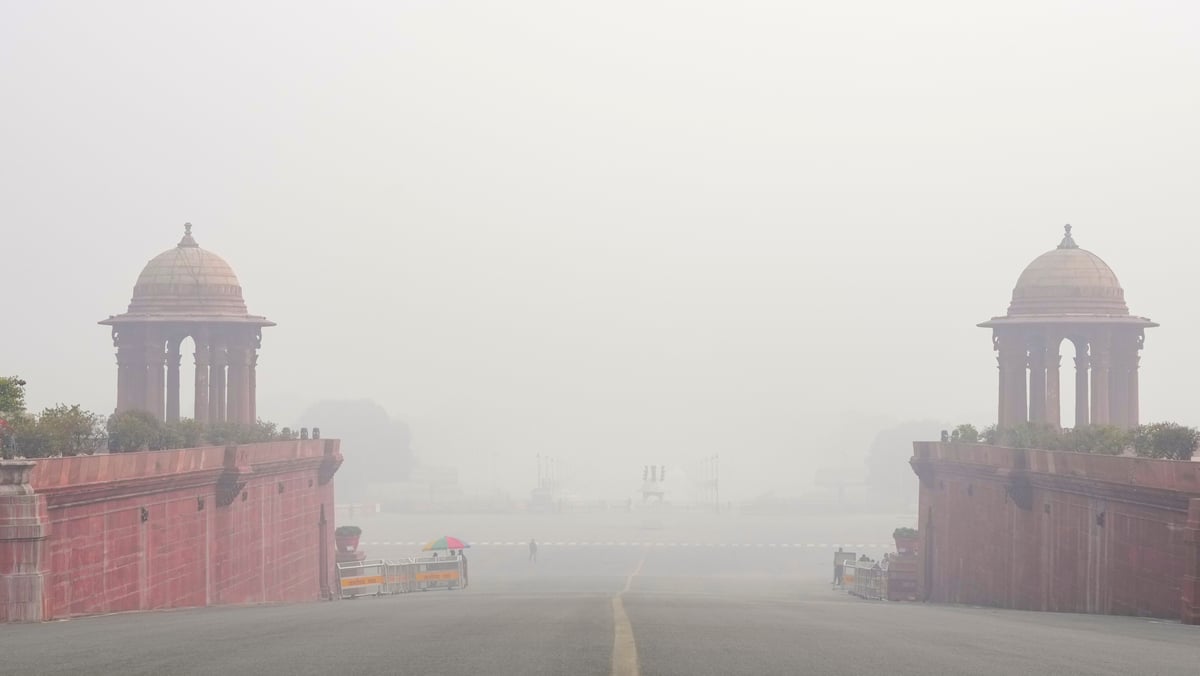Dense fog continued to grip Delhi, causing significant disruptions to flights and train services. On Sunday, six flights were cancelled, and 95 were delayed, while the city witnessed an unprecedented nine-hour period of zero visibility, the longest this winter season.
At 8 am, flight tracking website Flightradar reported six cancellations and 114 delays, with an average delay time of 18 minutes at Indira Gandhi International (IGI) Airport. On Saturday, the situation was even worse, with 48 flights cancelled and 564 delayed.
Weather Update For Today
The India Meteorological Department (IMD) reported that temperatures dropped to 10°C at 5:30 am Sunday, slightly lower than Saturday’s 10.2°C. Meanwhile, Delhi’s pollution levels remained in the ‘poor’ category, with an Air Quality Index (AQI) of 377 recorded at 6 am by the Central Pollution Control Board (CPCB).
Train services were also severely impacted by the fog. On Saturday, 81 trains were delayed, and 15 flights were diverted due to poor visibility, according to officials cited by PTI.
IMD officials confirmed that “zero visibility prevailed for nine hours at Palam between 6 pm and 3 am, marking the longest spell of the season.” Safdarjung, Delhi’s primary weather station, recorded eight hours of zero visibility.
The maximum temperature in the city reached 20°C, slightly above average, while the minimum was 7.8°C, also slightly above normal. Humidity levels ranged from 96% to 100%.
The weather department predicts partly cloudy skies for Sunday, with dense fog likely in the morning and smog or moderate fog expected later in the day. Southeast winds of 8-10 kmph are forecast in the afternoon, reducing to 6 kmph in the evening.
Zero Visibility At IGI Airport
At 7 am Saturday, general visibility at IGI Airport dropped to zero, with Runway Visual Range (RVR) between 100 and 250 meters under CAT III conditions. The CAT III facility allows low-visibility operations, but non-compliant flights faced disruptions.
Northern Railway reported 59 trains delayed by up to six hours and 22 by eight hours. The city’s 24-hour AQI average stood at 378, reflecting ‘very poor’ air quality, further exacerbating the challenges posed by the fog.
